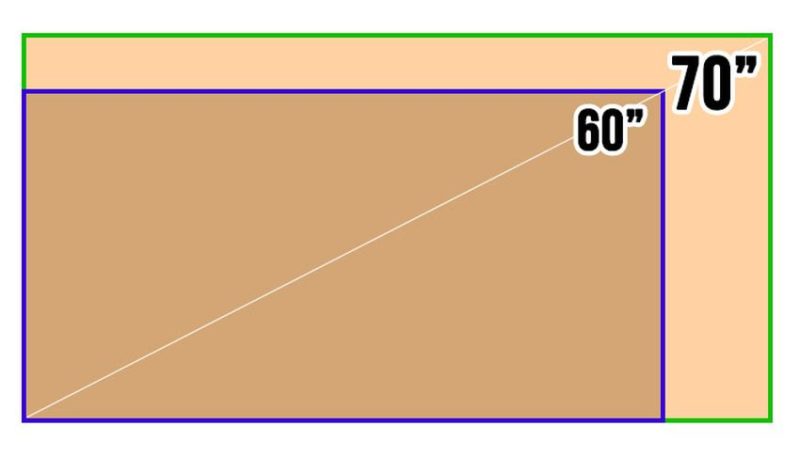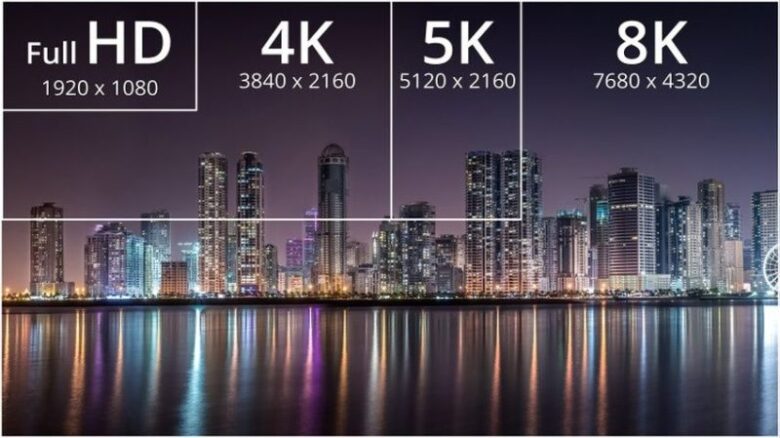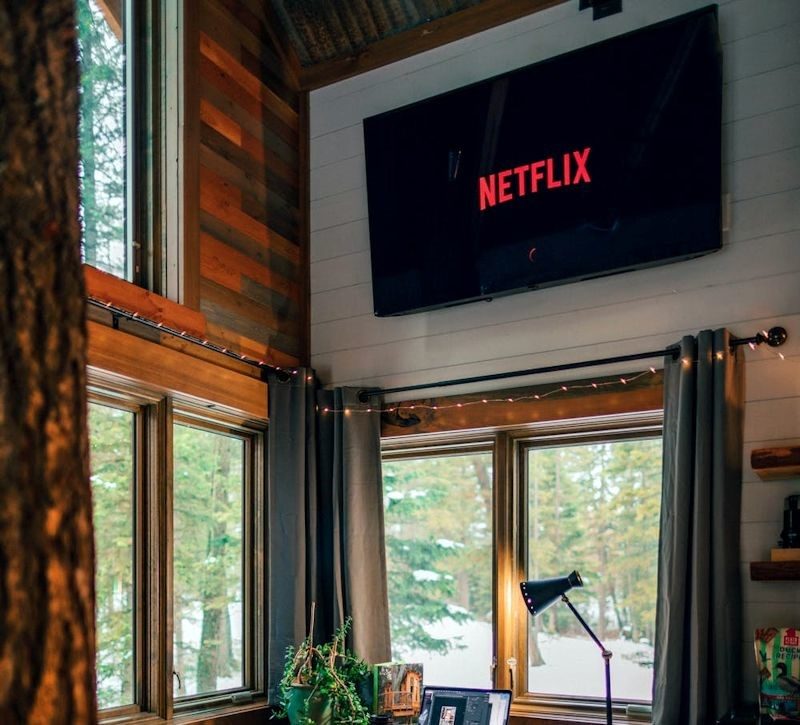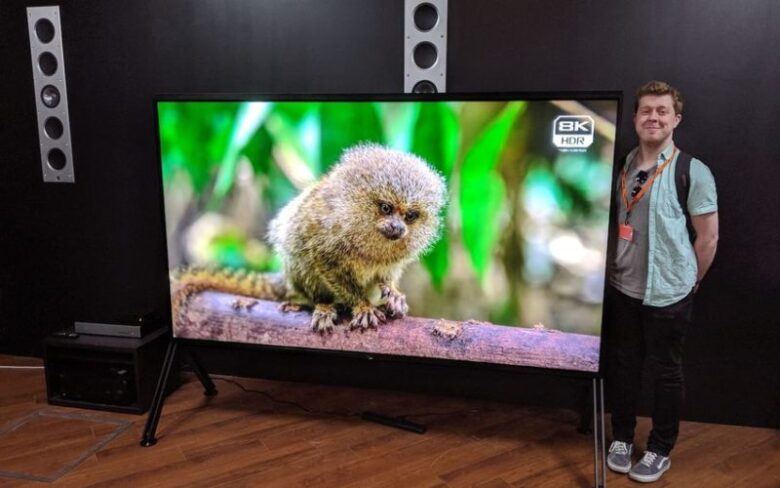If you are in the market for a new 70 inch TV, like these from GadgetReview, you will find that there is a world out there that is much more expansive beyond the TV sales of years past. There’s HD, 4K, 8K, curved screen, flat screen, in addition to the regular run of the mill TVs on the market.
All of these devices mostly have the same function; you can watch a show or movie on them. However, if you want a crystal clear image, with little lag time, there are some options that will work better for you than others. When asked, what is the difference between 4K and 8K? and Should I upgrade to 8K now or wait? The answers are not what you might expect.
The Difference in 70 Inch TV Resolution

A television’s resolution is represented by the number of pixels on the screen. Pixels are tiny pieces of information that essentially make up the picture you see on the screen. The more pixels a TV has, the sharper the image, because there are more tiny pieces of data.
The benchmark for high definition televisions starts with 1080 pixels. This will be an ideal resolution to seek out if you have a TV around 34-inches in size.
Once you get into bigger screen territory, you now enter the realm of 4K, also known as ultra-high-definition TV.
4K televisions have 2,160p, which makes the image on a larger screen seem life-like. You may feel like you are sitting at the football game you are watching on TV.
Now, 8K televisions are hitting the market. Many of these are the large 70 inch TVs. These mega resolution TV’s bring with them 4,320p. That means you re getting quadruple the total number of pixels, just like 4K TV’s upped the ante from the 1080p.
What are the Differences Between 4K and 8K TVs?

Aside from the number of pixels, the price of an 8K television is a huge factor. Since 8K TVs are still new to the market, they are harder to find, which makes them more expensive in the supply versus demand world.
Samsung was one of the first to explore the 8K world, launching its Q900 television. However this 65-inch TV comes with a hefty price tag; $5,000. If you are looking for a theatre size TV, they also have a 98-inch model. However, these run about $70,000.
LG recently launched its version of a 65-inch 8K TV, the OLEDC9P. This rings in at about $3,500.
The positives for the Q900 are that they have excellent color performance and incredible picture quality. For those who only watch TV to relax at night, and don’t really care about how many pixels your TV set is, the price tag is definitely a deterrent, especially when you can still get an excellent LCD UHD (4K) TV from much less than any of the above prices.

What’s the Benefit of a UHD Television?
If you are looking to get a television larger than 40 inches, you may want to consider getting a UHD, or 4K, TV. The larger the screen size, the more pixels you will want to have to obtain a fantastic picture. Compared to 1080p, you will notice the difference.
Is it Worth Getting an 8K Now, Rather than a 4K?

The short answer is, probably not. Unless you are an avid immersion-experience gamer, with huge screens, the price alone is a deterrent for most. For the rest of us, the screen quality isn’t that much more noticeable between the 8K and 4K. This is because most cable systems are not equipped to process 8K technology yet.
At best, you will have darker, brighter, more colorful images, on a bigger screen, but even using streaming services won’t make a huge difference in what you actually see on your TV.
Will the Cable I Have Now Work with an 8K Television?
No. If you decide you have to have an 8K TV now, you will need to invest in new HDMI cables. You will also need to get a new Blu-ray player, media streaming devices, and game systems that are 8K capable. Otherwise, there is no point in upgrading to an 8K TV.
For the time being, your current 4K TV, if you have already upgraded to that, will not be obsolete any time soon. You may want to wait to buy that 70 incher. Many other devices need to be upgraded to 8K capable and become more mainstream anyway.


